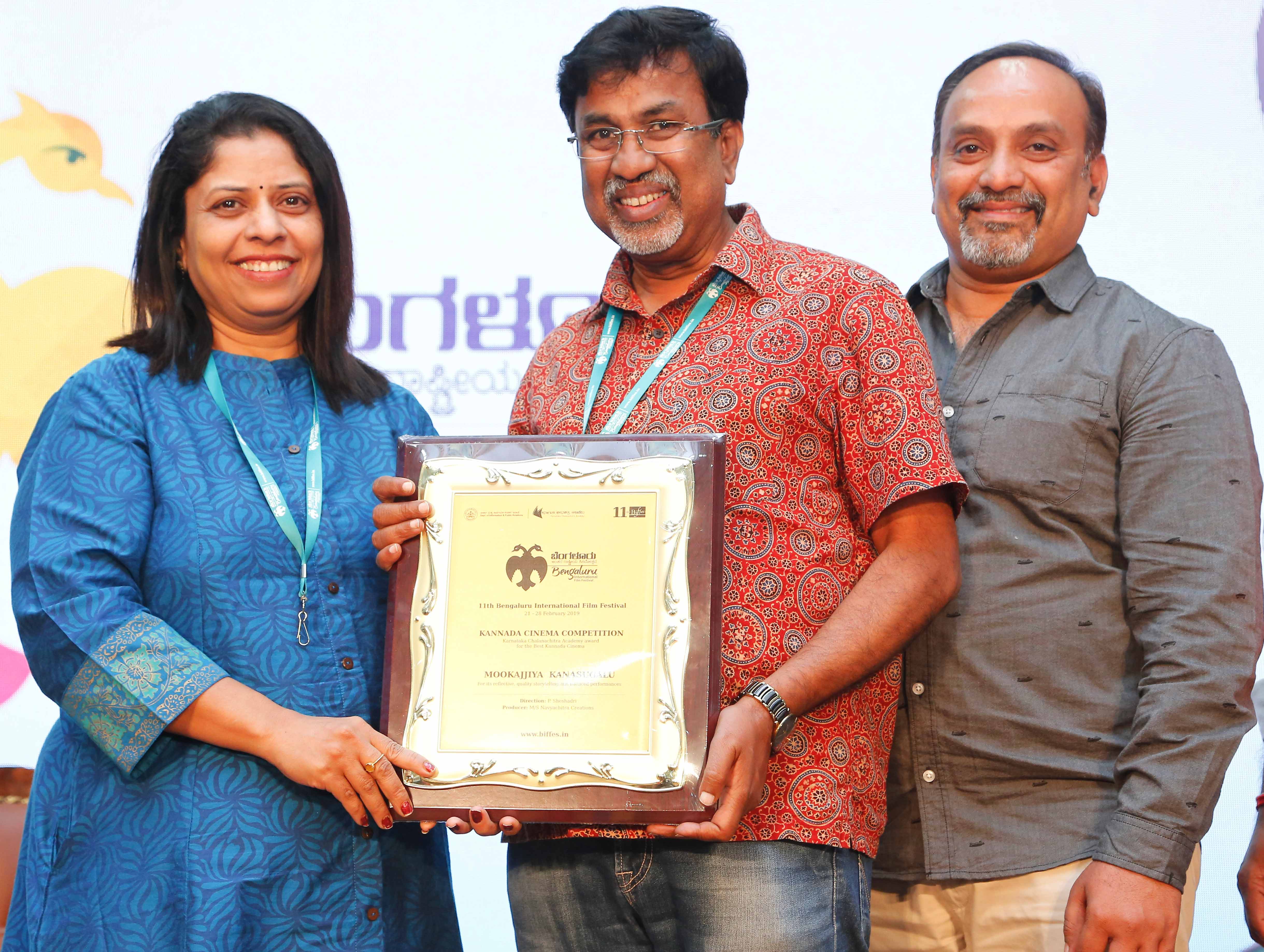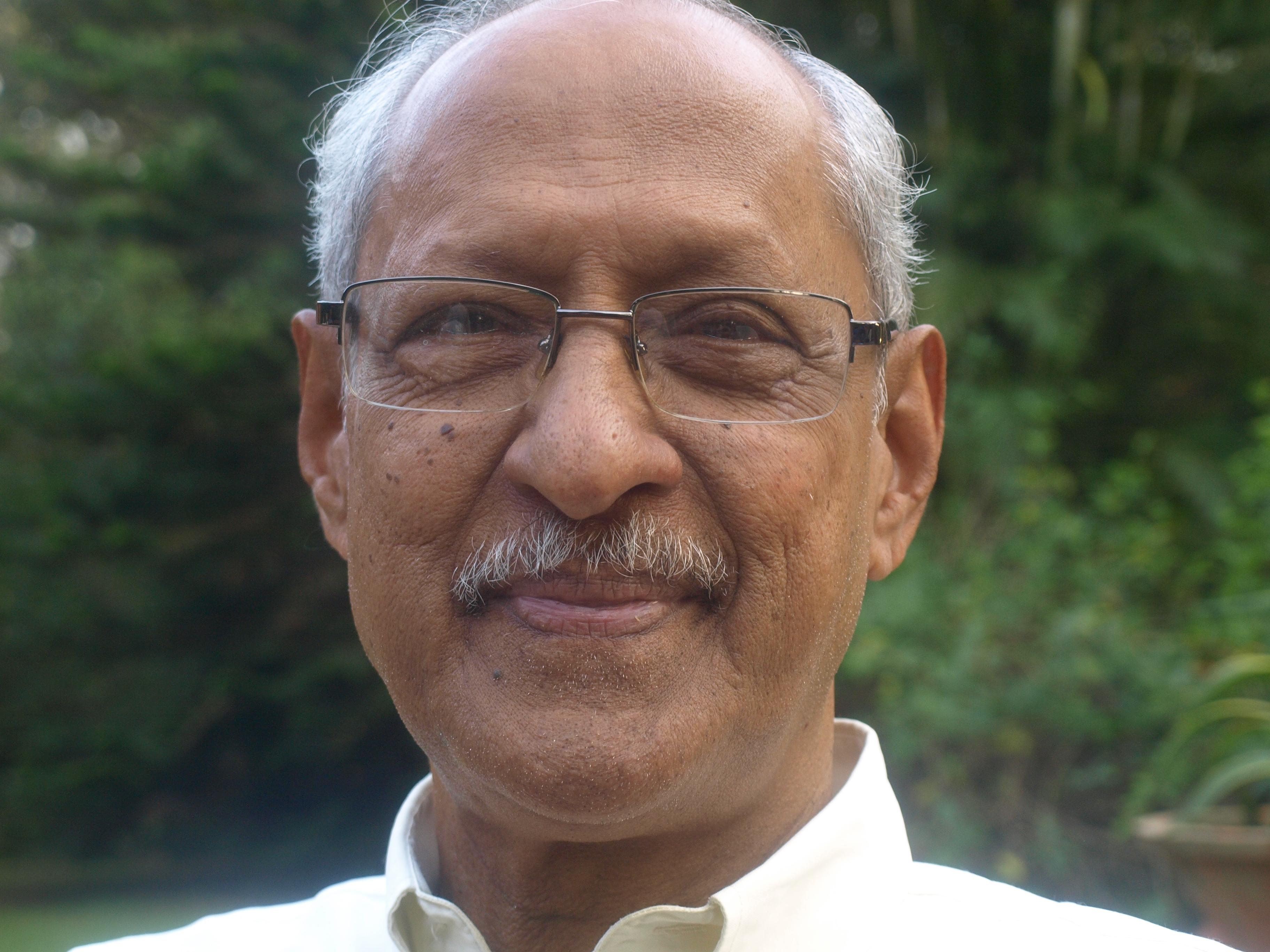|
Mookajjiya Kanasugalu (novel)
''Mookajjiya Kanasugalu'' (English: ''Dreams of Mookajji'') is a 1968 Kannada epic novel written by K. Shivaram Karanth. It won the Jnanpith Award The Jnanpith Award is the oldest and the highest Indian literary award presented annually by the Bharatiya Jnanpith to an author for their "outstanding contribution towards literature". Instituted in 1961, the award is bestowed only on Indian w ... in the year 1977. The novel is about the thoughts of human being of today's generation. It deals with the beliefs, the origin of tradition etc. The name of the novel itself is interesting as when translated, it says "Dreams of Silent Granny". Although the author does not want to mention any of the character as lead characters, its Granny and her grandson who are two main lead characters of this novel. Grandson represents every human being who has doubts about the origin of superstitious beliefs and tradition. Grandma in this novel has got a strength of seeing the things which are going ... [...More Info...] [...Related Items...] OR: [Wikipedia] [Google] [Baidu] |
Kannada
Kannada (; ಕನ್ನಡ, ), originally romanised Canarese, is a Dravidian language spoken predominantly by the people of Karnataka in southwestern India, with minorities in all neighbouring states. It has around 47 million native speakers, and was additionally a second or third language for around 13 million non-native speakers in Karnataka. Kannada was the court language of some of the most powerful dynasties of south and central India, namely the Kadambas, Chalukyas, Rashtrakutas, Yadava Dynasty or Seunas, Western Ganga dynasty, Wodeyars of Mysore, Nayakas of Keladi Hoysalas and the Vijayanagara empire. The official and administrative language of the state of Karnataka, it also has scheduled status in India and has been included among the country's designated classical languages.Kuiper (2011), p. 74R Zydenbos in Cushman S, Cavanagh C, Ramazani J, Rouzer P, ''The Princeton Encyclopedia of Poetry and Poetics: Fourth Edition'', p. 767, Princeton Unive ... [...More Info...] [...Related Items...] OR: [Wikipedia] [Google] [Baidu] |
Jnanpith Award
The Jnanpith Award is the oldest and the highest Indian literary award presented annually by the Bharatiya Jnanpith to an author for their "outstanding contribution towards literature". Instituted in 1961, the award is bestowed only on Indian writers writing in Indian languages included in the Eighth Schedule to the Constitution of India and English, with no posthumous conferral. From 1965 till 1981, the award was given to the authors for their "most outstanding work" and consisted of a citation plaque, a cash prize and a bronze replica of Saraswati, the Hindu goddess of knowledge and wisdom. The first recipient of the award was the Malayalam writer G. Sankara Kurup who received the award in 1965 for his collection of poems, Odakkuzhal (Poetry), Odakkuzhal (''The Bamboo Flute''), published in 1950. The rules were revised in subsequent years to consider only works published during the preceding twenty years, excluding the year for which the award was to be given and the cash priz ... [...More Info...] [...Related Items...] OR: [Wikipedia] [Google] [Baidu] |
Epic (genre)
Epic is a genre of narrative defined by heroic or legendary adventures presented in a long format. Grant, John, and John Clute. 1997. "Arabian fantasy." ''The Encyclopedia of Fantasy''. London: Orbit Books. . . Originating in the form of epic poetry, the genre also now applies to epic theatre, epic films, music, novels, stage play, television series, and video games. Scholars argue that 'the epic' has long since become "disembedded" from its origins in oral poetry. History Ancient sources Providing a plethora of narrative tropes, the Mesopotamian ''Epic of Gilgamesh'', as the first recorded epic poem, would lay the foundation for the entire Western branch of the genre. Both the Old Testament and New Testament borrow many themes from ''Gilgamesh'', which in turn has been found to draw from older Sumerian tradition. As such, some anthropologists identify Jesus as an embodiment of the same mythical archetype. Some similarities, among others, include stories of: * the uni ... [...More Info...] [...Related Items...] OR: [Wikipedia] [Google] [Baidu] |
Mookajjiya Kanasugalu (film)
''Mookajjiya Kanasugalu'' is a 2019 Kannada film directed by P. Sheshadri, based on the Jnanpith Award-winning novel of the same name by K. Shivaram Karanth. The film was produced by Navyachitra Creations and written by P. Sheshadri. Plot Mookajji is an eighty-year-old woman who lives in coastal Karnataka. Mookambika, as she was named at birth, was married off as a child before she could attain puberty, but the boy she was married to died within two days of the wedding. As a result, Mookajji now lives in her maternal house with her brother's grandson, Subbaraya and his wife Seetha who have two children. Subbaraya discovers that Mookajji has the power of extrasensory perception. She can touch any object or talk to a person and see the history behind that object or person. One day Subbaraya brings a small wicker basket to Mookajji so that she can store her betel nuts in it. Upon touching it, she sees a vision of the history of that basket. She begins to narrate the story of Ra ... [...More Info...] [...Related Items...] OR: [Wikipedia] [Google] [Baidu] |
The Times Of India
''The Times of India'', also known by its abbreviation ''TOI'', is an Indian English-language daily newspaper and digital news media owned and managed by The Times Group. It is the third-largest newspaper in India by circulation and largest selling English-language daily in the world. It is the oldest English-language newspaper in India, and the second-oldest Indian newspaper still in circulation, with its first edition published in 1838. It is nicknamed as "The Old Lady of Bori Bunder", and is an Indian " newspaper of record". Near the beginning of the 20th century, Lord Curzon, the Viceroy of India, called ''TOI'' "the leading paper in Asia". In 1991, the BBC ranked ''TOI'' among the world's six best newspapers. It is owned and published by Bennett, Coleman & Co. Ltd. (B.C.C.L.), which is owned by the Sahu Jain family. In the Brand Trust Report India study 2019, ''TOI'' was rated as the most trusted English newspaper in India. Reuters rated ''TOI'' as India's most trus ... [...More Info...] [...Related Items...] OR: [Wikipedia] [Google] [Baidu] |
Kannada Novels
Kannada (; ಕನ್ನಡ, ), originally romanised Canarese, is a Dravidian language spoken predominantly by the people of Karnataka in southwestern India, with minorities in all neighbouring states. It has around 47 million native speakers, and was additionally a second or third language for around 13 million non-native speakers in Karnataka. Kannada was the court language of some of the most powerful dynasties of south and central India, namely the Kadambas, Chalukyas, Rashtrakutas, Yadava Dynasty or Seunas, Western Ganga dynasty, Wodeyars of Mysore, Nayakas of Keladi Hoysalas and the Vijayanagara empire. The official and administrative language of the state of Karnataka, it also has scheduled status in India and has been included among the country's designated classical languages.Kuiper (2011), p. 74R Zydenbos in Cushman S, Cavanagh C, Ramazani J, Rouzer P, ''The Princeton Encyclopedia of Poetry and Poetics: Fourth Edition'', p. 767, Princeton University Pre ... [...More Info...] [...Related Items...] OR: [Wikipedia] [Google] [Baidu] |
Jnanpith Award-winning Works
The Jnanpith Award is the oldest and the highest Indian literary award presented annually by the Bharatiya Jnanpith to an author for their "outstanding contribution towards literature". Instituted in 1961, the award is bestowed only on Indian writers writing in Indian languages included in the Eighth Schedule to the Constitution of India and English, with no posthumous conferral. From 1965 till 1981, the award was given to the authors for their "most outstanding work" and consisted of a citation plaque, a cash prize and a bronze replica of Saraswati, the Hindu goddess of knowledge and wisdom. The first recipient of the award was the Malayalam writer G. Sankara Kurup who received the award in 1965 for his collection of poems, Odakkuzhal (''The Bamboo Flute''), published in 1950. The rules were revised in subsequent years to consider only works published during the preceding twenty years, excluding the year for which the award was to be given and the cash prize was increased to ... [...More Info...] [...Related Items...] OR: [Wikipedia] [Google] [Baidu] |




